Trade Union Organizing in Tunisia: LiA Reflection Week 3 (July 7-11)
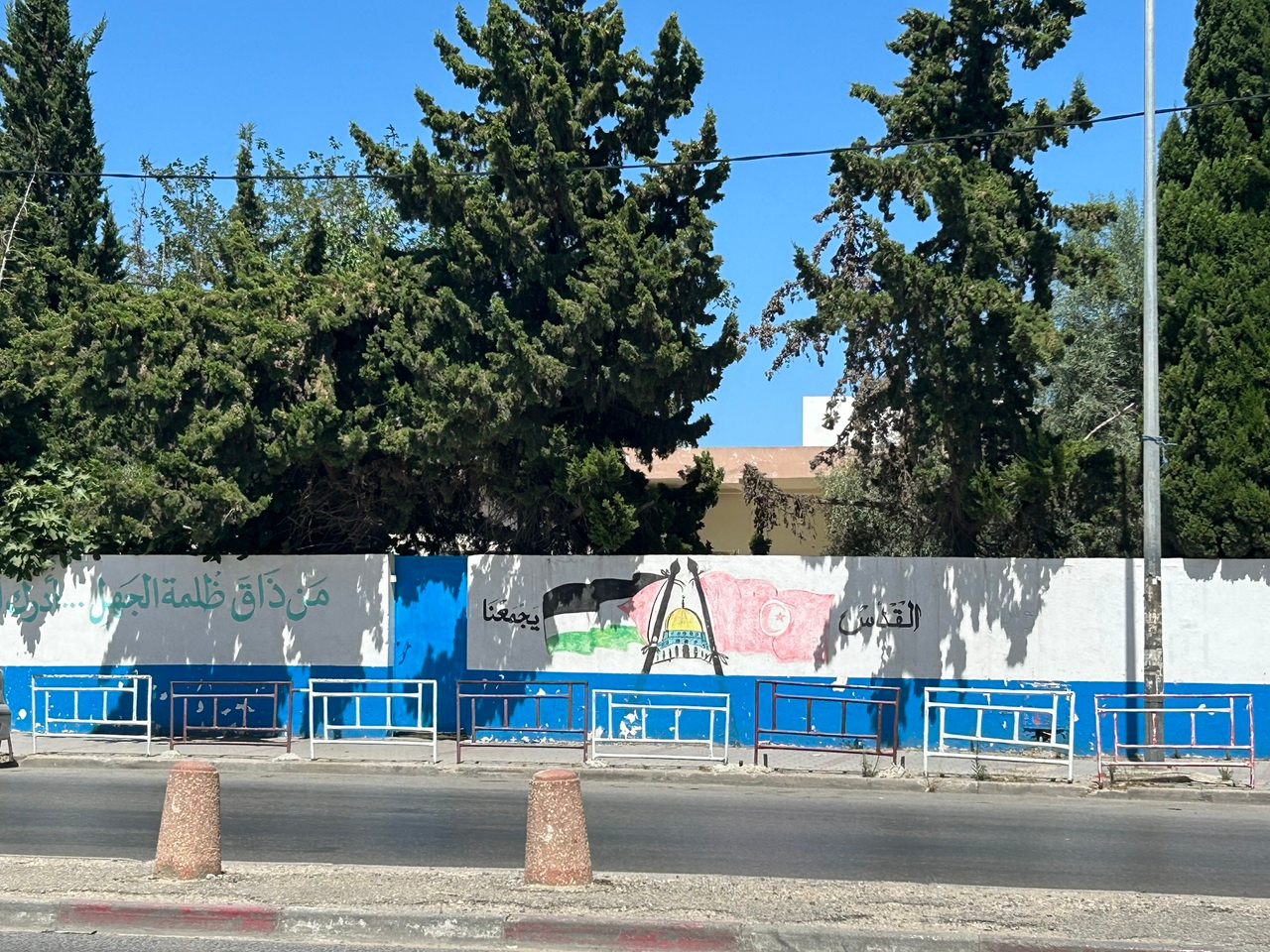
This week was wonderful. I have a feeling that I might say that every week, as I grow more and more comfortable in Tunis and as I deepen my relationships with the people around me, so you’ve been warned for this time next Sunday.
At work, we spent most of the week preparing for a half-day conference that took place on Thursday, July 10th. The event was put together in collaboration with the International Labor Organization to present the results of a study conducted on how climate change uniquely affects women working in the agricultural sector. From a purely observational perspective, I loved being able to participate in the planning of the event and learned so much from the UGTT’s organizing strategies. In my life at Georgetown, I have ended up planning a lot of events for the Coalition for Workers’ Rights, and there is so much that I have to learn from the tactics of an official union.
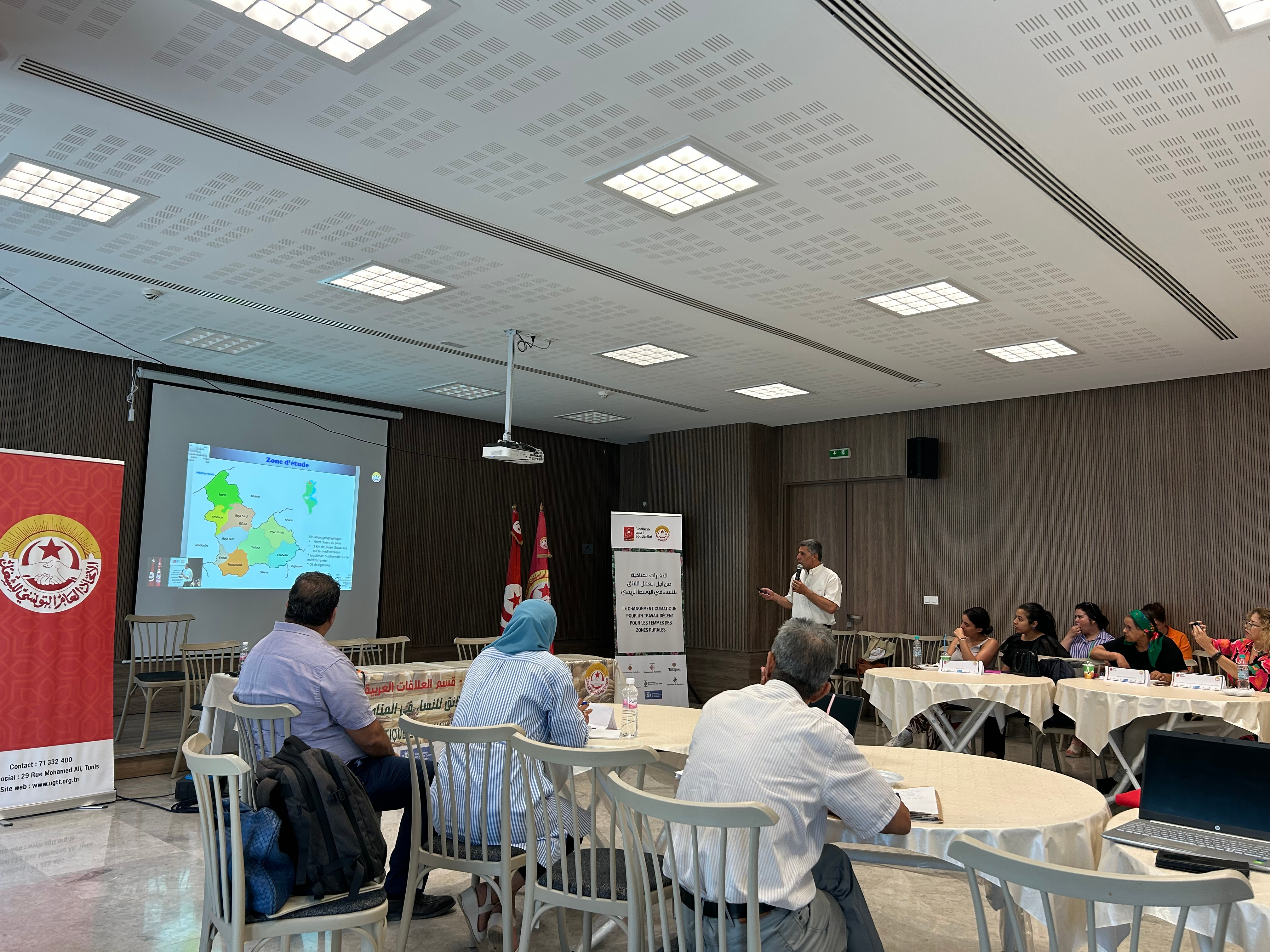
At a base level, the conception of the conference in itself is quite special. To present the results of a scientific study to the people surveyed—often indecipherable to the average person, to a worker who does not have the time nor the energy nor, in some cases, the educational level—is a way of democratizing information, of taking scientific studies from the realm of academia and office spaces to the people most affected by the data gathered. To that end, the UGTT invited to the conference many people working in agricultural NGOs, women’s rights advocacy groups, and labor organizations, all groups who work directly with the rural collectives and farms in Tunisia, who can listen to the results of the study and take decisive change.
Second, the organizational tactics of the union truly made the event all that it was. Personal phone calls were made and emails were sent out to each invitee, and we made little bags for everyone with the emblem of the conference, as well as stickers and a beautiful floral headscarf / bandana typically work by women farmworkers to protect their heads from the sun and to prevent sweat from dripping down their faces. Having physical memorabilia is so meaningful. During the day of the conference itself, I helped check people in and pass out the tote bags to attendees, and people were so excited to receive tangible objects as a demonstration of solidarity and as a representation of the information shared.
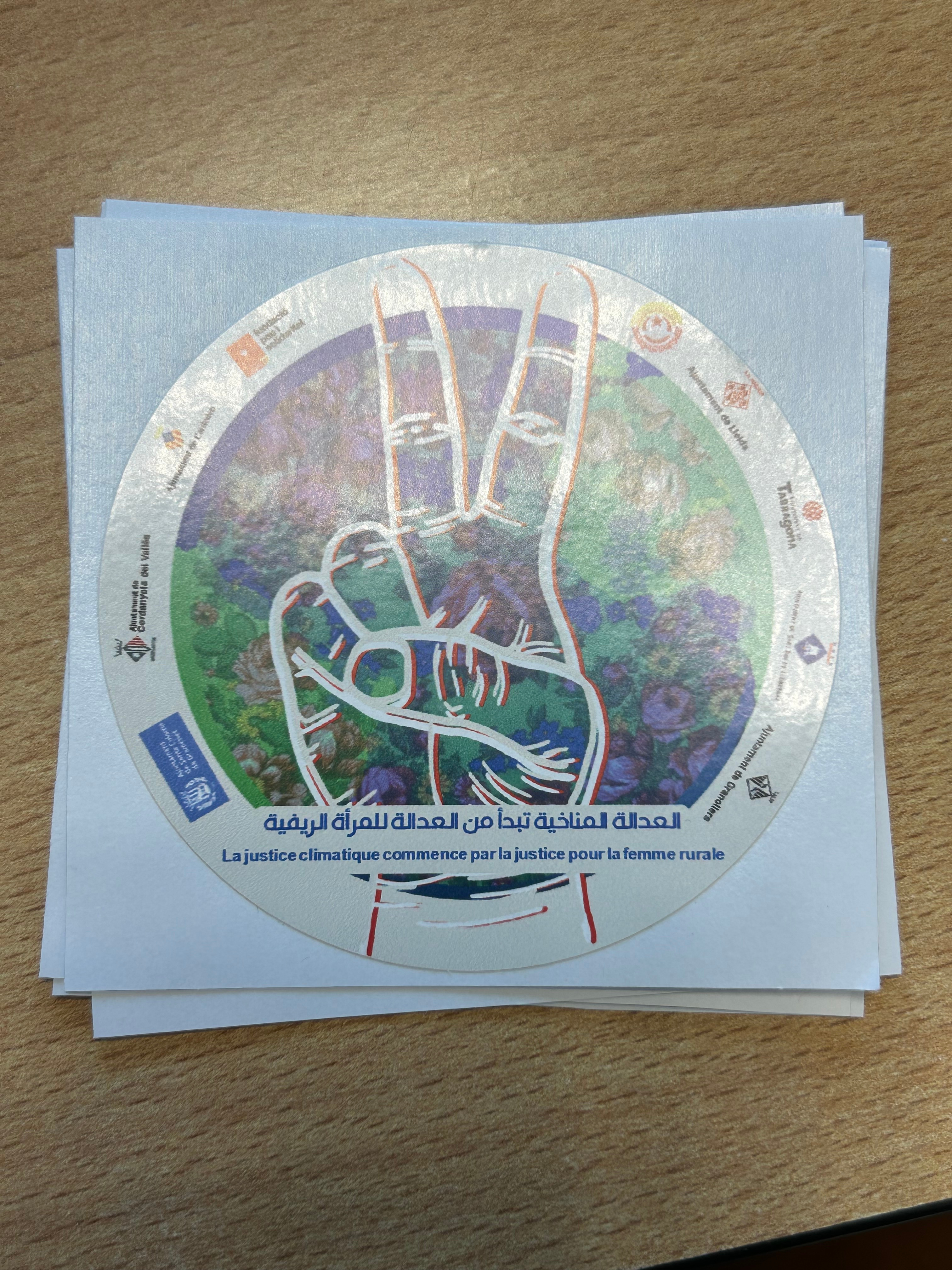
(Climate justice starts for justice for rural women)
Pertaining to the results of the study itself, anyone living in the Anthropocene can probably imagine what the results were. The study, concluded in 2024, found that the past several years have been plagued by extreme and unprecedented heat, which has myriad horrific effects on workers: heat stress, strokes, fatigue, and extreme heart strain, in addition to reproductive problems and higher rates of cancers and neurotoxins in the body. Meteorological changes because of climate catastrophe have meant that drought is more common than ever before, and pollution in the air has dramatically reduced crop yields. In addition, different types of illnesses are becoming more and more common for agricultural workers: cancers, and respiratory illnesses, and lyme disease, among many others.
For the agricultural industry, which is one of the largest sectors in Tunisia, climate change poses an existential threat—not just in the long-term sense or periodic sense of horrific, annihilating natural disasters like we have just seen in Texas—but one that legitimately makes working each day lethal. As average yearly temperatures have risen consistently, as rainfall diminishes and the dry period becomes longer and longer each year, crop production is severely affected and workers are more and more vulnerable.
For example, the 2024 calendar year saw seven dry months, a figure literally without precedent in recent history in Tunisia. Almost across the board, crop production has diminished: wheat, olive trees, lemon farms, everything. And women make up roughly seventy percent of the agricultural workforce, they will undoubtedly be the ones whose lives are most affected on a day-to-day basis as they risk their lives to plant and harvest crops that sustain our lives on an increasingly unlivable planet.
I have included below the current weather forecast in the capital city of Tunis, where I am living, but both you and I literally cannot imagine how hot it is further south in Tunisia or in exposed fields in small towns along the coastline with the sun beating down on your back, continuously, without end, for hours upon hours in the hottest parts of the day.
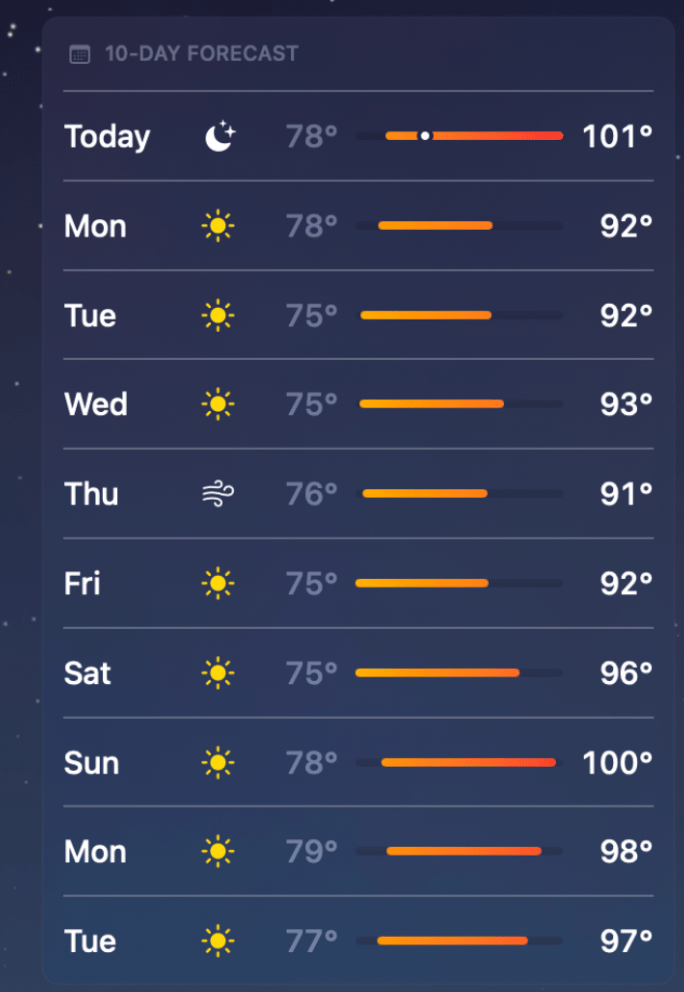
10-day forecast in Tunis for this week
After the conference on Thursday, my wonderful co-workers invited me to go to lunch with them. I was very nervous to impose or complicate what might otherwise be easy conversation, but they kindly included me, and we went to a delicious restaurant in the Medina. Although my lovely host grandmother has introduced me to many kinds of Tunisian specialities, I got to try zgougou for the first time with my coworkers, a delicious pudding typically made from flour or dried fruit, sprinkled with the dust of pistachio and hazelnut.
It was a very definitive example, not at all infrequent, where I felt so welcomed by the people at the UGTT, and I am so grateful for their kindness and their hospitality towards me.
In this upcoming week, I plan to continue to develop my relationships with people in the union, but to focus much more heavily on tech worker organizing within the UGTT. There will be many pressing updates in this next week as a strike was announced starting on Tuesday, July 15th, and I hope to do whatever I can to support them and show solidarity with their cause. A key thing that I want to do this week is to get to know the organizers at the federation for tech workers and to have the chance to ask them more specific questions, now that I’ve gotten to know them a bit better.
I am very aware that I am at the halfway point of my internship—time has passed so unbelievably quickly—and there is so much more that I need to accomplish before I leave!!! I am trying to form more relationships with people working directly in the tech industry, notably those without formal ties to the UGTT, as I hone in on the subject of my thesis. I also really hope to make connections with some of the people in Tunisia doing tech worker organizing on a global, not just local, scale.
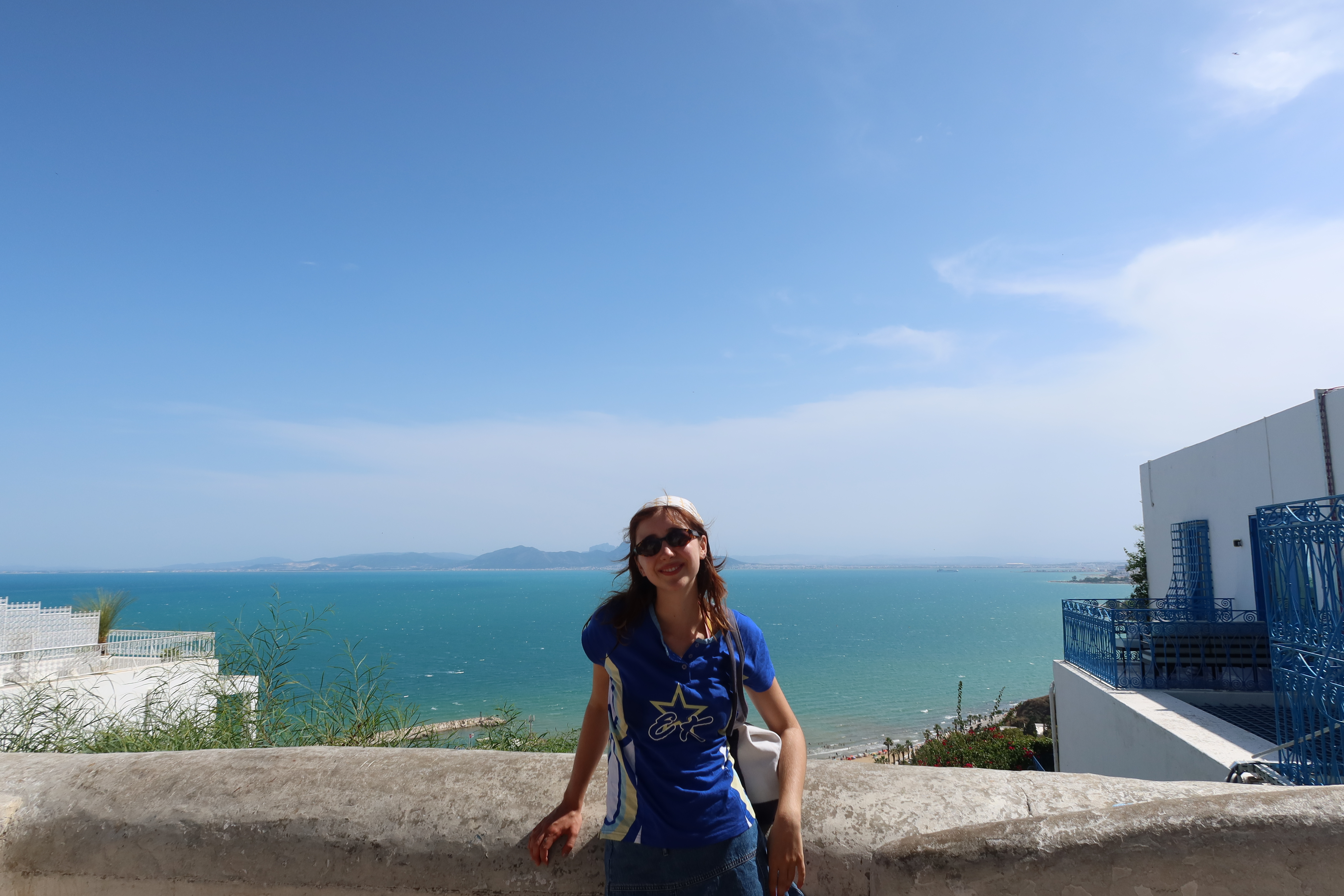
Me at Sidi Bou Saïd on Saturday, July 12th.
I want to finish this blog post with a quote from Waiting for the Barbarians, a novel written by South African author J.M. Coetzee in 1980, that I finished this week. I feel very powerless writing this blog post from so far away, not being able to do anything but watch as fascism corrodes all systems that have not already deteriorated in my home country of the United States.
In thinking and learning about the effects of climate change on agricultural workers this week, I mourn the death of Jaime Alanís Garcia, a farmworker in Ventura County whose death was caused by federal immigration raids on Thursday, July 10th, the very same day as the conference at the UGTT. Alanís Garcia fell from the roof of a building about 30 feet and broke his neck, fractured his skull, and suffered artery rupture as he attempted to flee from ICE agents who were brutally raiding Glass House Farms facilities in Camarillo and Carpinteria.
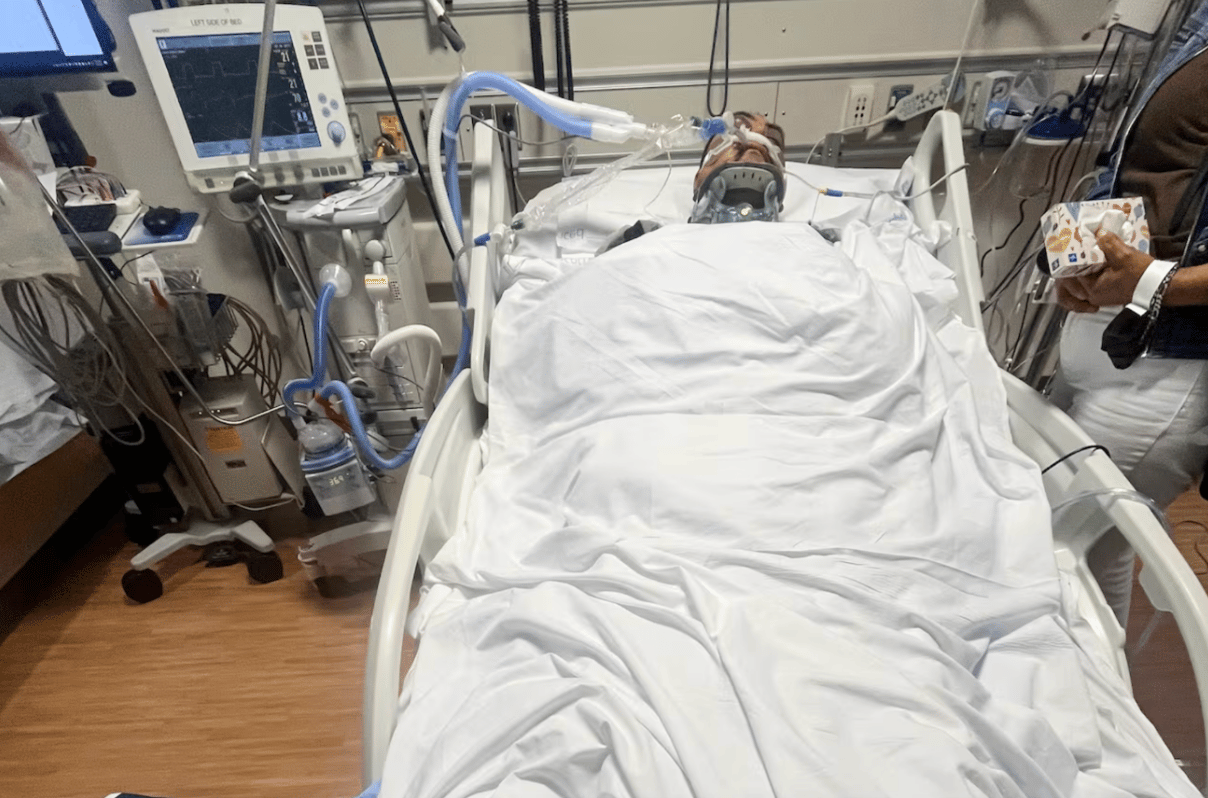
Jaime Alanís Garcia before he was taken off of life support on Saturday, July 12th. Photo provided by his family.
Reading fiction and nonfiction, as well as building community and solidarity for when I return home and can take action in ways that I cannot on the other side of the earth, is the only thing giving me solace. I urge everyone reading this currently living in the United States to do everything, everything in the power to impart shame upon and to physically interrupt the people responsible for the murder of Jaime Alanís Garcia and the kidnapping of thousands of our community members. This quote in particular by Coetzee is one that I have kept close to my heart for its diagnosis of our time:
"The children never doubt that the great old trees in whose shade they play will stand forever, that one day they will grow to be strong like their fathers, fertile like their mothers, and that they will live and prosper and raise their own children and grow old in the place where they were born. What has made it impossible for us to live in time like fish in water, like birds in air, like children? It is the fault of Empire!
Empire has created the time of history. Empire has located its existence not in the smooth recurrent spinning time of the cycle of the seasons but in the jagged time of rise and fall, of beginning and end, of catastrophe. Empire dooms itself to live in history and plot against history. One thought alone preoccupies the submerged mind of Empire: how not to end, how not to die, how to prolong its era" [146].

Jaime Alanís Garcia, whose life was taken from him by the United States empire, ICE, and the DHS.





Please sign in
If you are a registered user on Laidlaw Scholars Network, please sign in